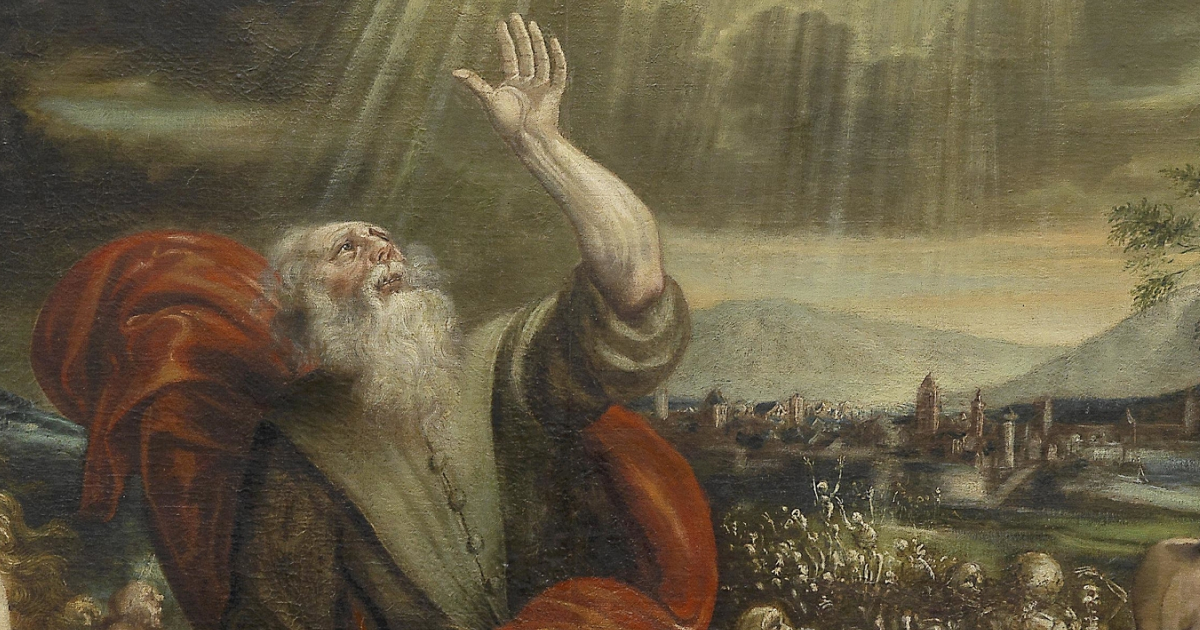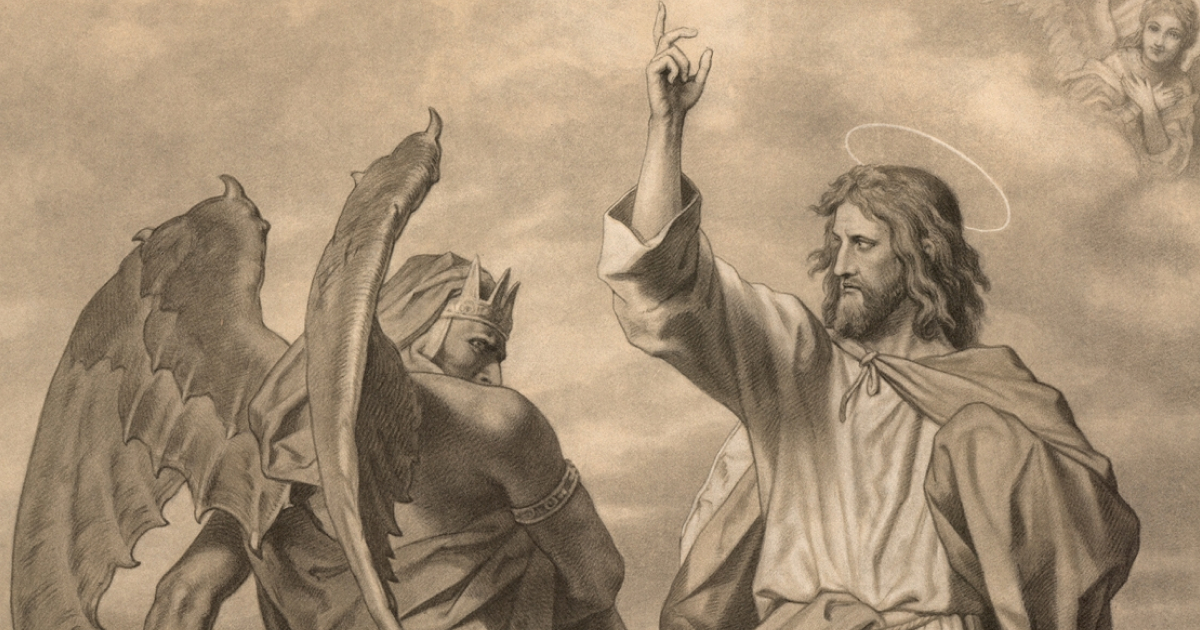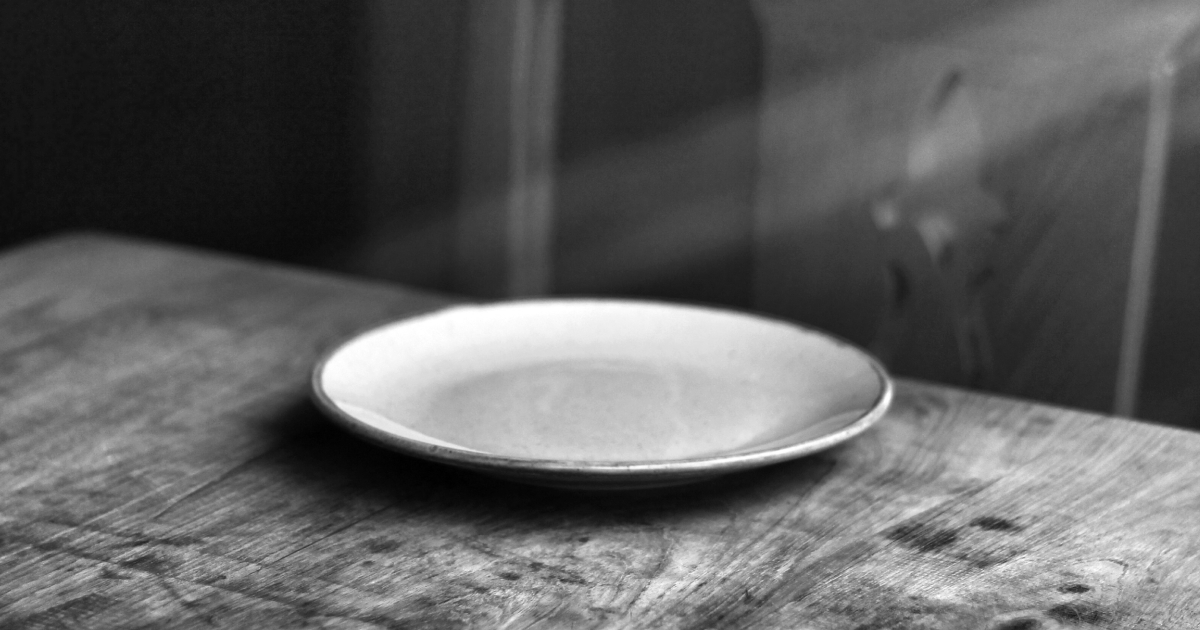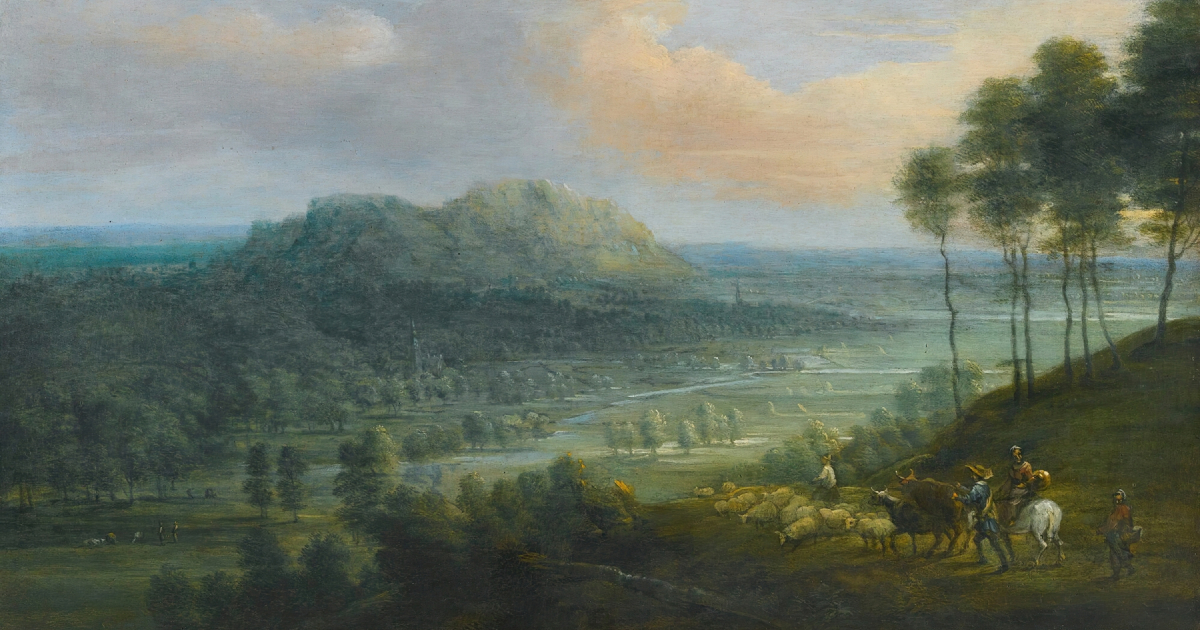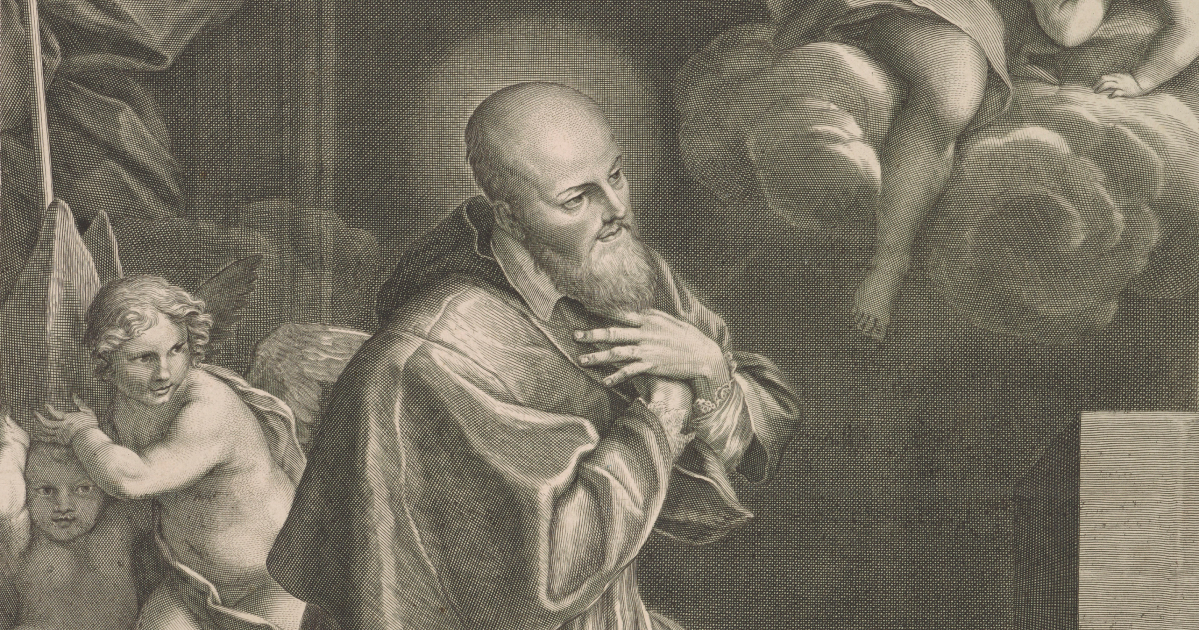The Catholic Church in Germany is undergoing a profound and fiercely contested transformation, and at the centre of this process stands the highly controversial Synodaler Weg (Synodal Path).
Launched in 2019, the Synodal Path was a direct response to the explosive 2018 Mannheim, Heidelberg, and Gießen (MGH) Study, which revealed that Church files from 1946 to 2014 detailed over 3,600 cases of child abuse involving more than 1,670 members of the clergy.
And perhaps more disturbing still, was that in many cases the church had taken deliberate measures to attempt to conceal and supress the truth.
Catholic philosopher Hanna-Barbara Gerl-Falkovitz says the Church's approach to dealing with child abuse cases has been catastrophic.
At a public lecture, at Heiligenkreuz University in Austria in 2022, she said: “Instead of cleansing itself with light, the Church built thicker walls. Had it embraced truth sooner, it would not have haemorrhaged trust. Now, we face not just lost credibility, but lost souls."
Speaking to the Catholic Herald, she maintains her profound anger on this issue.
“The German Catholic Church has been utterly stupid and stubborn in its silence. Had it been transparent from the beginning, the credibility crisis could have been avoided. Instead, it chose secrecy, which deepened the wounds of the victims.”
“The Church in Germany made a serious mistake by refusing to be transparent and face up to all this and have independent inquiries. Instead each diocese just quietly conducted its own investigation, leading to heaps of totally inconsistent standards and processes. And the results of these have been trickling out for years – and every few months there is yet another abuse scandal.”
“This means the German Catholic Church ends up staying in the headlines for all the wrong reasons. Had we just done what the French bishops did – one comprehensive in-depth national report, presented once – we could have created clarity and a sense of transparency and moved forward. Instead, we look incompetent and will look guilty forever.”
“So I cannot understand how the German Catholic Church allows this kind of stubborn foolishness. The result is devastating for itself – endless scandals, constant bad press, and a flood of people leaving the Church.”
“We should have had one major moment of reckoning – what we call the ‘big wash’ – where everything is laid bare. Instead, we’ve created an atmosphere of never-ending crisis.”
But the roots of the Synod Path are not in the 2011 child abuse scandals, rather go back to the 1971–1975 Synod in the historic southern Germany city of Würzburg.
Then, the Synod brought together German bishops and laypeople in a unique partnership, and many of its resolutions were forward-looking, especially on the role of women.
Then, however, the Vatican overwhelmingly ignored its findings.
But thirty-five years later, the horrific abuse revelations of 2010 at Berlin’s Canisius College forced the bishops to finally act on the issue.
Yet instead of actually taking any real action, it launched the 2011–2015 "Dialogue Process"—which failed outright.
Then when the infamous MHG Study in 2018 revealed the extent of the child abuse scandal horror, the German bishops partnered with the Central Committee of German Catholics (ZdK) to launch the Synodal Path in 2019, in the form of the ‘Synodal Path Theology Forum’ to explore this angle.
Catholic philosopher Gerl-Falkovitz was appointed as a member of this forum, but soon became disillusioned with it, claiming the Synodal Path had morphed into something that had capitulated to secular ideology.
“The Synodal Path has taken the Church far from its theological foundations. What we see now is not about reform, rather the Church being remodelled according to sociological trends” she says.
"It was even proposed that the word ‘Gott’ (God) should no longer be used, but instead written as 'G*tt'. This was originally a proposal from the Federation of German Catholic Youth, but then things went either further. Many attacks were made, such as that 'God' is only male, and that the word ‘Goddess’ also wasn’t being used, and also because there were supposedly a multitude of possible genders, then it was apparently necessary to write just 'GTT' for God.”
“All of this - all these discussions about sexuality and female ordination – too often all this just resembles parliamentary debates and not spiritual discernment.”
“And this process operates completely outside canon law. It has no binding force. After all, you can build a castle out of air if you like – but then it still has no substance, it’s still just made of air.”
But Prof Thomas Schüller at the Institute of Canon Law in Münster says the Synodal Path should not been seen as a radical break with Catholic tradition, rather a return to it.
"Synodality is a founding principle of the Church. In the early centuries, bishops and believers met in synods to define key doctrines – Trinity, Resurrection, even Mary as Theotokos. None of this came from top-down papal decrees. It was synodal reflection in the Holy Spirit."
And for Schüller, issues such as the role of women, is exactly what the church needs to be addressing today.
“It’s often claimed that the women’s issue is just a decadent, bourgeois concern of Western European Catholic women. But that’s not true.In many parts of the global Church, there are devout, courageous mothers in the faith and religious sisters who feel it’s a massive injustice that half of humanity has no voice in the Catholic Church. So now the question of women is basically becoming a survival issue for the Catholic Church.”
“Faith must be interpreted in every age. The alternative is irrelevance. God speaks not just through clergy, but through the whole people of God. That’s what scares the hierarchy. It’s about control."
"Pope Francis reawakened a central dimension of what it means to be Church. Just because someone holds episcopal office doesn’t mean they alone hold the wisdom.
"We are called to listen, to discern together. That’s the core of synodality. And it’s also a bridge to the Orthodox world, which shares this synodal understanding of authority."
Prof Schüller also warns against conflating synodality with democracy.
"Synodality is not about majority rule and democracy. It’s about the faithful walking together to discern God’s will. Bishops retain authority, but they must learn to listen," he said.
Though forthright, even Schüller’s endorsement of the Synodal Path is cautious compared to that of the Catholic reform movement 'Wir sind Kirche' (We Are Church).
The group We Are Church in Germany campaigns for greater lay participation, the ordination of women, voluntary celibacy, and democratic governance within the Church.
Though radically controversial for its critics, and not even officially recognised or sanctioned by the the official Roman Catholic hierarchy, the group vehemently defends its position on the Synodal Path.
The proposed reforms, it claims, are consistent with the spirit of the Second Vatican Council, are also fully necessary for the Church’s credibility and future, and it also says that criticising the Synodal Path for being outside of Canon law is a completely moot point.
Spokesperson Christian Weisner, the Synodal Path should be considered within a longer tradition of attempted reform.
"The Würzburg Synod of the 1970s tried to move the Church forward after Vatican II. Their proposals, like the female diaconate, were ignored. We learned the hard way—if you wait for Rome, you wait forever."
In 2023 and 2024, the global Synod on Synodality convened in Rome, with women even voting for the first time.
And in his closing sermon, Pope Francis said the Church had to “stand up, move forward – and also get its hands dirty”.
Many then interpreted this as Germany’s Synod Path acting as a potential catalyst for profound change for Catholic Church across the world.
But in spring 2024, instead of taking direct action on this issue, Pope Francis ordered ten study groups to handle the most divisive topics relating to the Synodal Path.
For Weisner, this response was disappointing and damaging.
He said: "This opaque handling of the women’s issue destroyed trust. The continuing discrimination against women shows how strongly traditional male-dominated power structures are held in place and how much the legacy of previous popes – Inter Insigniores (1976), Mulieris dignitatem (1988) and Ordinatio Sacerdotalis (1994) – still weighs on the Church today.
“After the high expectations at the outset, it is naturally disappointing that no concrete reforms have been decided upon even in 2024.”
“By invoking dogma and canon law, the Church will not find a way out of the impasse. These are the best possible starting points for continuing along the Synodal Path.” ‘
Not all German dioceses are on board with the Synodal Path, and Bishops in Cologne, Eichstätt, Regensburg, and Passau, for example, have flatly refused to support the Synodal Committee, saying it was a matter of “conscience”.
For Synodal Path critic Gerl-Falkovitz, this opposition to the Synodal Committee is completely understandable, and is very the reason why she resigned from the Synodal Forum in February 2023 alongside two fellow theologians, Marianne Schlosser and Katharina Westerhorstmann, and the journalist Dorothea Schmidt.
“I never regretted resigning from the Central Committee of German Catholics, as I never felt I could make a difference in this role. I felt like mere decoration, like a fig leaf.
“In truth all of us – we actually had no influence. We were never listened to at all. So leaving actually had far ore effect than staying, as inside, we were powerless.”
Having resigned citing concerns that it was “casting doubt on central Catholic doctrines and beliefs” and ignoring Vatican warnings, the four women wrote to Pope Francis and were amazed and delighted to receive a reply – in just four days.
“We were pleased to receive the Pope’s response. But even after we made it public, it had no impact. The Synodal Committee went ahead anyway. No reaction.”
“The German bishops proposed replacing the four departing women—including me—with others who were more favourable to the process, but the bishops’ conference rejected that, so the posts remained vacant, which is a real open wound for the German Synodal Assembly.”
According to Hanna-Barbara Gerl-Falkovitz , Pope Francis gave “a clear response” to the German Synodal Assembly – through the Global Synod. And even if most people were not aware of it, the truth is that behind closed doors he was extremely unhappy with German bishops on the issue of the Synod Path.”
“What happened is that the Vatican held three meetings with the German bishops told them every time: this is not acceptable," she said.
“At the last meeting, Parolin, Fernández and Prevost took part. So Rome now realises it must treat the German bishops far more firmly, because so far, the meetings were polite, but ineffective.”
“Pope Francis probably lacked the strength to enforce it all the way through. But Pope Leo is new, energetic, and he understands the situation. He won’t attend the meetings himself – that’s too much – but he’ll send the right people, and that will make a difference.”
“Only the Vatican can resolve this. It’s beyond the laity. Rome must set conditions, draw boundaries, create guardrails. I believe they will. Pope Leo stands for synodality, but not in the German form. This German model cannot continue. It creates parity between priests and laity. The ordained ministry ends up with no more weight than a lay opinion. That’s just theologically wrong.”
And yet some key figures in the Church feel the very same person, Pope Leo XIV, clearly supports the Synod’s continuation.
Prof Thomas Söding of the Central Committee of German Catholics (ZdK) said: “It is important to us that Pope Leo explained right at the outset that we will continue with the Synod.”
“He is not a copy of Pope Francis, but someone from the Augustinian order with unique experience… and he will hopefully seize the moment… to dampen the enthusiasm of some and set clear rules.”
Prof Söding made clear that Germany is not trying to impose its model on the rest of the Church: “That does not necessarily mean that the Synodal order in Germany will be tried out as a model order.”
Instead, he called for global exchange: “Let’s stay in conversation and see what the best practices are. Germany is ready “to fight as part of the world. To risk our necks and uphold these ideas that Pope Francis first formulated.”
“It’s just a shame that the bishops said they wanted to participate and are now messing around with this joint project. But perhaps it will change in the future, we will see…”
(Photo by Thomas Lohnes/Getty Images)
The Catholic Church in Germany is undergoing a profound and fiercely contested transformation, and at the centre of this process stands the highly controversial <em>Synodaler Weg </em>(Synodal Path).
Launched in 2019, the Synodal Path was a direct response to the explosive 2018 Mannheim, Heidelberg, and Gießen (MGH) Study, which revealed that Church files from 1946 to 2014 detailed over 3,600 cases of child abuse involving more than 1,670 members of the clergy.
And perhaps more disturbing still, was that in many cases the church had taken deliberate measures to attempt to conceal and supress the truth.
Catholic philosopher Hanna-Barbara Gerl-Falkovitz says the Church's approach to dealing with child abuse cases has been catastrophic.
At a public lecture, at Heiligenkreuz University in Austria in 2022, she said: “Instead of cleansing itself with light, the Church built thicker walls. Had it embraced truth sooner, it would not have haemorrhaged trust. Now, we face not just lost credibility, but lost souls."
Speaking to the <em>Catholic Herald</em>, she maintains her profound anger on this issue.
“The German Catholic Church has been utterly stupid and stubborn in its silence. Had it been transparent from the beginning, the credibility crisis could have been avoided. Instead, it chose secrecy, which deepened the wounds of the victims.”
“The Church in Germany made a serious mistake by refusing to be transparent and face up to all this and have independent inquiries. Instead each diocese just quietly conducted its own investigation, leading to heaps of totally inconsistent standards and processes. And the results of these have been trickling out for years – and every few months there is yet another abuse scandal.”
“This means the German Catholic Church ends up staying in the headlines for all the wrong reasons. Had we just done what the French bishops did – one comprehensive in-depth national report, presented once – we could have created clarity and a sense of transparency and moved forward. Instead, we look incompetent and will look guilty forever.”
“So I cannot understand how the German Catholic Church allows this kind of stubborn foolishness. The result is devastating for itself – endless scandals, constant bad press, and a flood of people leaving the Church.”
“We should have had one major moment of reckoning – what we call the ‘big wash’ – where everything is laid bare. Instead, we’ve created an atmosphere of never-ending crisis.”
But the roots of the Synod Path are not in the 2011 child abuse scandals, rather go back to the 1971–1975 Synod in the historic southern Germany city of Würzburg.
Then, the Synod brought together German bishops and laypeople in a unique partnership, and many of its resolutions were forward-looking, especially on the role of women.
Then, however, the Vatican overwhelmingly ignored its findings.
But thirty-five years later, the horrific abuse revelations of 2010 at Berlin’s Canisius College forced the bishops to finally act on the issue.
Yet instead of actually taking any real action, it launched the 2011–2015 "Dialogue Process"—which failed outright.
Then when the infamous MHG Study in 2018 revealed the extent of the child abuse scandal horror, the German bishops partnered with the Central Committee of German Catholics (ZdK) to launch the Synodal Path in 2019, in the form of the ‘Synodal Path Theology Forum’ to explore this angle.
Catholic philosopher Gerl-Falkovitz was appointed as a member of this forum, but soon became disillusioned with it, claiming the Synodal Path had morphed into something that had capitulated to secular ideology.
“The Synodal Path has taken the Church far from its theological foundations. What we see now is not about reform, rather the Church being remodelled according to sociological trends” she says.
"It was even proposed that the word ‘Gott’ (God) should no longer be used, but instead written as 'G*tt'. This was originally a proposal from the Federation of German Catholic Youth, but then things went either further. Many attacks were made, such as that 'God' is only male, and that the word ‘Goddess’ also wasn’t being used, and also because there were supposedly a multitude of possible genders, then it was apparently necessary to write just 'GTT' for God.”
“All of this - all these discussions about sexuality and female ordination – too often all this just resembles parliamentary debates and not spiritual discernment.”
“And this process operates completely outside canon law. It has no binding force. After all, you can build a castle out of air if you like – but then it still has no substance, it’s still just made of air.”
But Prof Thomas Schüller at the Institute of Canon Law in Münster says the Synodal Path should not been seen as a radical break with Catholic tradition, rather a return to it.
"Synodality is a founding principle of the Church. In the early centuries, bishops and believers met in synods to define key doctrines – Trinity, Resurrection, even Mary as <em>Theotokos</em>. None of this came from top-down papal decrees. It was synodal reflection in the Holy Spirit."
And for Schüller, issues such as the role of women, is exactly what the church needs to be addressing today.
“It’s often claimed that the women’s issue is just a decadent, bourgeois concern of Western European Catholic women. But that’s not true.In many parts of the global Church, there are devout, courageous mothers in the faith and religious sisters who feel it’s a massive injustice that half of humanity has no voice in the Catholic Church. So now the question of women is basically becoming a survival issue for the Catholic Church.”
“Faith must be interpreted in every age. The alternative is irrelevance. God speaks not just through clergy, but through the whole people of God. That’s what scares the hierarchy. It’s about control."
"Pope Francis reawakened a central dimension of what it means to be Church. Just because someone holds episcopal office doesn’t mean they alone hold the wisdom.
"We are called to listen, to discern together. That’s the core of synodality. And it’s also a bridge to the Orthodox world, which shares this synodal understanding of authority."
Prof Schüller also warns against conflating synodality with democracy.
"Synodality is not about majority rule and democracy. It’s about the faithful walking together to discern God’s will. Bishops retain authority, but they must learn to listen," he said.
Though forthright, even Schüller’s endorsement of the Synodal Path is cautious compared to that of the Catholic reform movement 'Wir sind Kirche' (We Are Church).
The group We Are Church in Germany campaigns for greater lay participation, the ordination of women, voluntary celibacy, and democratic governance within the Church.
Though radically controversial for its critics, and not even officially recognised or sanctioned by the the official Roman Catholic hierarchy, the group vehemently defends its position on the Synodal Path.
The proposed reforms, it claims, are consistent with the spirit of the Second Vatican Council, are also fully necessary for the Church’s credibility and future, and it also says that criticising the Synodal Path for being outside of Canon law is a completely moot point.
Spokesperson Christian Weisner, the Synodal Path should be considered within a longer tradition of attempted reform.
"The Würzburg Synod of the 1970s tried to move the Church forward after Vatican II. Their proposals, like the female diaconate, were ignored. We learned the hard way—if you wait for Rome, you wait forever."
In 2023 and 2024, the global Synod on Synodality convened in Rome, with women even voting for the first time.
And in his closing sermon, Pope Francis said the Church had to “stand up, move forward – and also get its hands dirty”.
Many then interpreted this as Germany’s Synod Path acting as a potential catalyst for profound change for Catholic Church across the world.
But in spring 2024, instead of taking direct action on this issue, Pope Francis ordered ten study groups to handle the most divisive topics relating to the Synodal Path.
For Weisner, this response was disappointing and damaging.
He said: "This opaque handling of the women’s issue destroyed trust. The continuing discrimination against women shows how strongly traditional male-dominated power structures are held in place and how much the legacy of previous popes – Inter Insigniores (1976), Mulieris dignitatem (1988) and Ordinatio Sacerdotalis (1994) – still weighs on the Church today.
“After the high expectations at the outset, it is naturally disappointing that no concrete reforms have been decided upon even in 2024.”
“By invoking dogma and canon law, the Church will not find a way out of the impasse. These are the best possible starting points for continuing along the Synodal Path.” ‘
Not all German dioceses are on board with the Synodal Path, and Bishops in Cologne, Eichstätt, Regensburg, and Passau, for example, have flatly refused to support the Synodal Committee, saying it was a matter of “conscience”.
For Synodal Path critic Gerl-Falkovitz, this opposition to the Synodal Committee is completely understandable, and is very the reason why she resigned from the Synodal Forum in February 2023 alongside two fellow theologians, Marianne Schlosser and Katharina Westerhorstmann, and the journalist Dorothea Schmidt.
“I never regretted resigning from the Central Committee of German Catholics, as I never felt I could make a difference in this role. I felt like mere decoration, like a fig leaf.
“In truth all of us – we actually had no influence. We were never listened to at all. So leaving actually had far ore effect than staying, as inside, we were powerless.”
Having resigned citing concerns that it was “casting doubt on central Catholic doctrines and beliefs” and ignoring Vatican warnings, the four women wrote to Pope Francis and were amazed and delighted to receive a reply – in just four days.
“We were pleased to receive the Pope’s response. But even after we made it public, it had no impact. The Synodal Committee went ahead anyway. No reaction.”
“The German bishops proposed replacing the four departing women—including me—with others who were more favourable to the process, but the bishops’ conference rejected that, so the posts remained vacant, which is a real open wound for the German Synodal Assembly.”
According to Hanna-Barbara Gerl-Falkovitz , Pope Francis gave “a clear response” to the German Synodal Assembly – through the Global Synod. And even if most people were not aware of it, the truth is that behind closed doors he was extremely unhappy with German bishops on the issue of the Synod Path.”
“What happened is that the Vatican held three meetings with the German bishops told them every time: this is not acceptable," she said.
“At the last meeting, Parolin, Fernández and Prevost took part. So Rome now realises it must treat the German bishops far more firmly, because so far, the meetings were polite, but ineffective.”
“Pope Francis probably lacked the strength to enforce it all the way through. But Pope Leo is new, energetic, and he understands the situation. He won’t attend the meetings himself – that’s too much – but he’ll send the right people, and that will make a difference.”
“Only the Vatican can resolve this. It’s beyond the laity. Rome must set conditions, draw boundaries, create guardrails. I believe they will. Pope Leo stands for synodality, but not in the German form. This German model cannot continue. It creates parity between priests and laity. The ordained ministry ends up with no more weight than a lay opinion. That’s just theologically wrong.”
And yet some key figures in the Church feel the very same person, Pope Leo XIV, clearly supports the Synod’s continuation.
Prof Thomas Söding of the Central Committee of German Catholics (ZdK) said: “It is important to us that Pope Leo explained right at the outset that we will continue with the Synod.”
“He is not a copy of Pope Francis, but someone from the Augustinian order with unique experience… and he will hopefully seize the moment… to dampen the enthusiasm of some and set clear rules.”
Prof Söding made clear that Germany is not trying to impose its model on the rest of the Church: “That does not necessarily mean that the Synodal order in Germany will be tried out as a model order.”
Instead, he called for global exchange: “Let’s stay in conversation and see what the best practices are. Germany is ready “to fight as part of the world. To risk our necks and uphold these ideas that Pope Francis first formulated.”
“It’s just a shame that the bishops said they wanted to participate and are now messing around with this joint project. But perhaps it will change in the future, we will see…”
<em>(Photo by Thomas Lohnes/Getty Images)</em>








